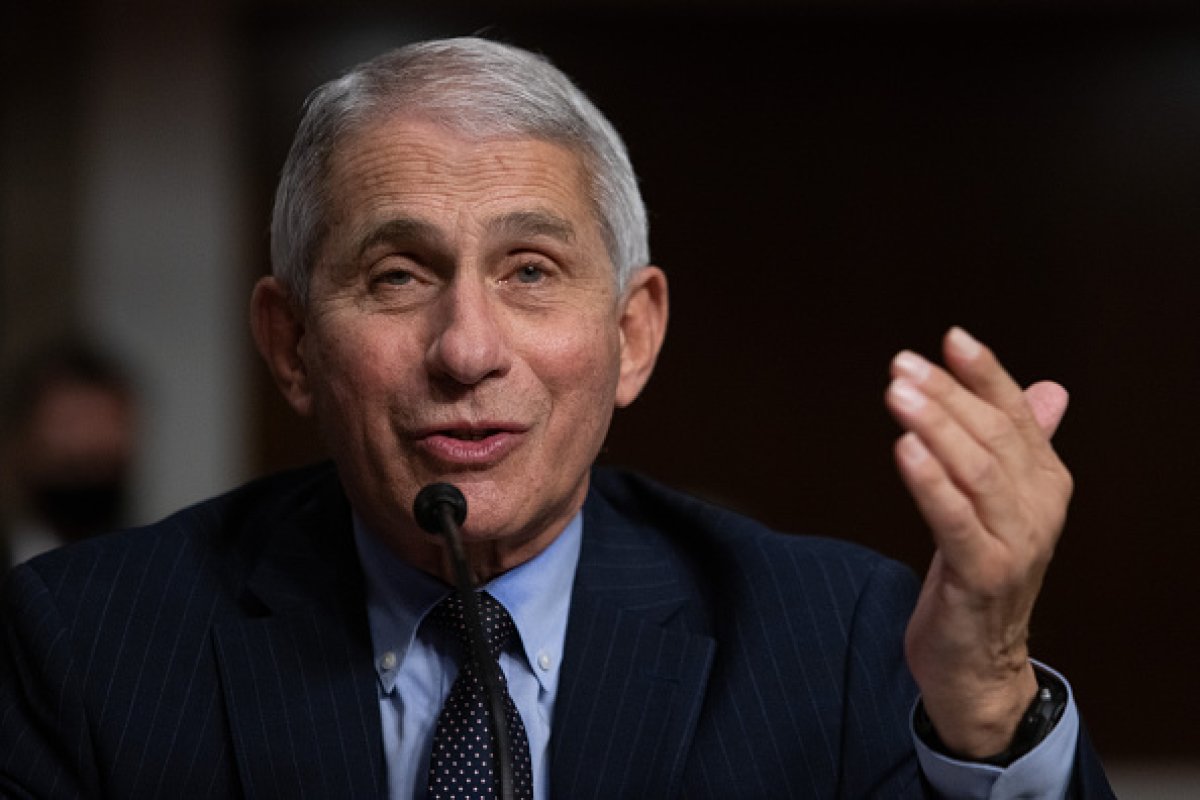On Monday, Anthony Fauci said the first wave of the coronavirus infections in the U.S. never entirely ended and called the current upticks in COVID-19 cases across the nation only "an elongated and an exacerbation of the original first wave."
The director of the National Institute of Allergy and Infectious Diseases told Yahoo Finance, "We've never really had waves, in the sense of up and then down to a good baseline. It's been up and wavering up and down till, now, we're at the highest baseline we've ever been, which is really quite precarious."
The U.S. shattered its single-day record Friday after reporting more than 85,000 new confirmed cases. There are currently 41,753 COVID-19 patients hospitalized across the country, a 40 percent increase from last month, according to data from the COVID Tracking Project.
Fauci said that because the number of daily cases never fell to a low baseline—which he considers to be less than 10,000—the current coronavirus situation is just an extension of the first wave.
"If you look at when we got hit badly, which was dominated early on by the Northeastern corridor, particularly the New York metropolitan area, the cases went way up, and then came back down to a baseline of about 20,000 cases," Fauci said.
"We never really cleared and got down to a very low baseline, which I would consider to be less than 10,000 per day, maybe just a couple of thousand per day," he continued.

Fauci noted that before the number of new COVID-19 cases had time to decrease to much lower figures, states began reopening over fears that lockdowns would hurt the economy. He suggested the lack of consistency across states helped lead to infections in Florida, Texas and elsewhere soaring over the summer.
"Then, you remember, when we tried to quote 'open up the economy' again, and open up the country, there were several states that did that in a somewhat varied way. Some did not adhere very well to the proposed guidelines," he added.
"And what you saw, particularly along the southern states—Florida, Georgia, Texas, Southern California, Arizona—we started to see a peak that brought us up to around 70,000 per day," he continued.
Fauci attributed the continual spike in cases after Labor Day weekend to the change in season and what is often known as flu season.
"As we're getting into the cold weather, we came back up again to the worst that we've ever had, which was over 80,000 per day," Fauci said.
"So you know, it's kind of semantics. You want to call the third wave or an extended first wave," he added. "No matter how you look at it, it's not good news."
As of Monday, the U.S. has reported over 8.7 million coronavirus cases and more than 225,000 deaths.
Newsweek reached out to the NIAID for additional comment but did not hear back before publication.
Uncommon Knowledge
Newsweek is committed to challenging conventional wisdom and finding connections in the search for common ground.
Newsweek is committed to challenging conventional wisdom and finding connections in the search for common ground.
About the writer
Katherine Fung is a Newsweek reporter based in New York City. Her focus is reporting on U.S. and world politics. ... Read more
To read how Newsweek uses AI as a newsroom tool, Click here.








